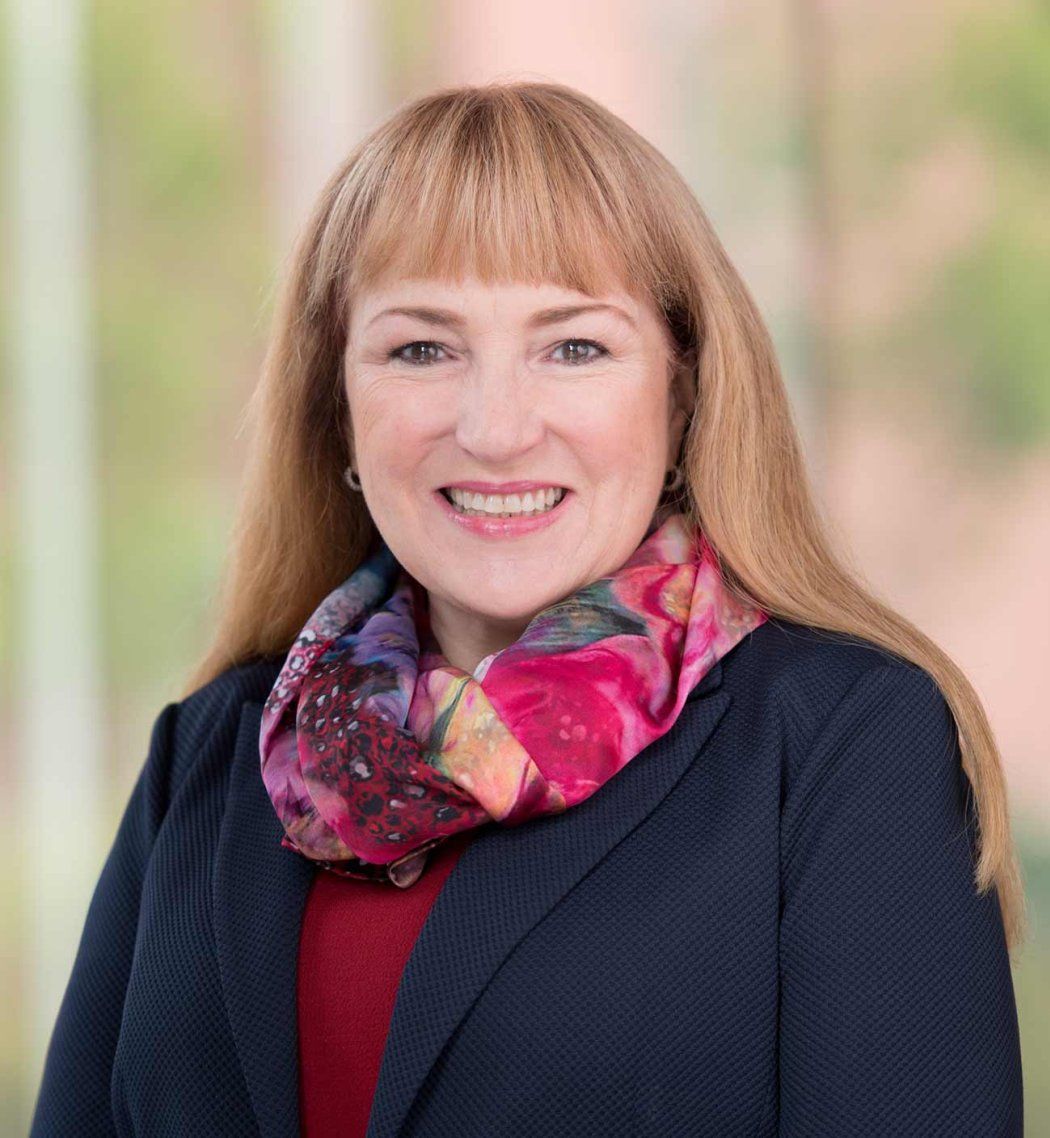After two decades at UC San Francisco, Greta Schnetzler is set to retire in May from her position as chief campus counsel.
In her role, Schnetzler has had a front row seat to UCSF’s growth and transformation over the past 20 years. The breadth and complexity of the legal issues she and her team in the Office of Legal Affairs have confronted were often novel and challenging – all the while supporting the overall mission and values of UCSF.
“Greta has been a true partner in advancing UCSF’s mission,” said UCSF Chancellor Sam Hawgood, MBBS. “She has provided strategic legal counsel and creative problem-solving to ensure the success of our research, patient care, and education communities. I have valued her unique ability to navigate complex legal issues and partnerships, and I am deeply grateful for her guidance and contributions to the University.”
Legal acumen and PRIDE Values
Schnetzler and her team provide legal advice to every corner of the university.
In support of the Chancellor, UCSF and UCSF Health, her team has worked on a vast portfolio of projects that involves labor and employment law, medical staff members, academic affairs, graduate medical education, student affairs, research compliance, international programs, complex contracts, and more. The legal advice that this team provides has supported the university’s PRIDE Values – a characteristic that Schnetzler is praised for.
“Someone once told me that a good lawyer will keep you out of prison, but a great lawyer will help you do the right thing,” said Catherine Lucey, MD, MACP, executive vice chancellor and provost. “Greta is not only a great lawyer – she is a spectacular lawyer. She helps leaders get clarity around the nature of the problem that they are confronting, surfaces the core values that should guide decisions about the right path forward, and then maps the path to the solution.”
Schnetzler came to UCSF in 2005 and was appointed chief campus counsel in 2013.
Previously, she was a partner at Gordon & Rees, a law firm where she specialized in representing colleges and universities. This early work sparked a passion for mission-driven organizations, like UCSF, that aligned with her own values and sense of purpose.
One project that she feels great pride in was her involvement in the development of Pride Hall at Zuckerberg San Francisco General Hospital and Trauma Center (ZSFG). Schnetzler and the legal team were brought in to negotiate the ground lease with the city of San Francisco, which was the first step to developing the project. The negotiations were lengthy and complex and involved leaning into the university’s strong ties with the city and county of San Francisco and its public health department as well as ZSFG. Pride Hall opened in 2023, and Schnetzler is reminded of the success of the project whenever she looks out her living room window.
“We’re now able to offer the same access to clinical trials and cutting-edge research for the patient population we serve at the General as we do at our other UCSF facilities,” Schnetzler said.
Community impact
Schnetzler’s influence extends beyond UCSF.
During the early days of the COVID-19 pandemic, she and her team helped to secure personal protective equipment (PPE) that was in short supply at the time. To address the need quickly, they had to do things they had not done before, such as registering with customs and navigating U.S. Food and Drug Administration restrictions on what could and could not come into the country. The team not only succeeded in getting enough PPE for UCSF but also were able to share with community partners.
Schnetzler and her team also facilitated the establishment of a testing lab at Chan Zuckerberg BioHub, when community testing was not yet available. The legal team first worked with the FDA to get approval for a COVID-19 test to use as an investigational device. Later, they negotiated with Chan Zuckerberg BioHub to secure facilities for a testing lab. That testing lab was able to provide free COVID testing to public health departments across California and eventually served as the testing lab for a community testing site in San Francisco’s Mission District. These efforts were instrumental in UCSF’s ability to respond swiftly and effectively to the pandemic.
Looking to the future
Mentoring and growing a strong leadership team has been another cornerstone of Schnetzler’s career.
She emphasizes regular conversations about professional development and encouraging team members to seek growth opportunities. “If they are ready to step up and go after an opportunity for advancement, I will be their biggest cheerleader,” she said.
After Schnetzler retires in May, she plans to continue her work as a volunteer mediator for the federal district court and enhance those skills by learning more about restorative justice, an approach designed to address the needs of victims of crime or conflict and repairing the harm. She also will take time to decompress, travel, and volunteer for a small nonprofit arts organization.
As an artist herself, she looks forward to having more time to work on her fine art photography in the Bayview studio she and her husband work from.
“Being at UCSF in the last 20 years, witnessing the expansion of our research, education, and health care missions, and supporting leadership through this growth has been an incredible honor,” Schnetzler said.
